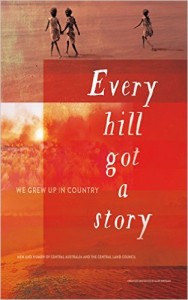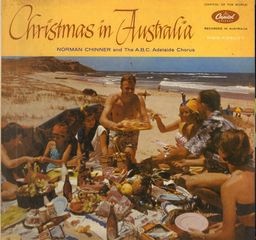In the spirit of solving small frustrations I offer my weekend experience of getting Toolbox files into Elan. I have over a hundred texts in Nafsan, most of which are time-aligned and interlinearised. I am working with Stefan Schnell on adding GRAID annotation to some of these texts and the preferred way of doing this is in Elan, with the GRAID annotation at the morphemic-level. I tried importing Toolbox files using the Elan ‘Import’ menu, and had listed all field markers in Toolbox, together with their internal dependencies (which should then map to Elan’s relationship between tiers). These settings are stored in an external file. Unfortunately, the import failed several times, despite changing the settings slightly after each attempt.
PARADISEC activity update
We are working on a collection of tapes made by Mary Ayres, Ph.D. during doctoral research conducted between 1979 and 1981 in numerous dialects from two language groups in the Morehead District, Western Province, Papua New Guinea. At ANU we have started working on Don Kulick’s recordings of Gapun (PNG). In Sydney and Melbourne we … Read more
Urban Fieldwork: A LIPIL discussion
Martha Tsutsui recaps last week’s Linguistics in the Pub in London (LIPIL), a monthly informal gathering of linguists to discuss topical areas in our field.
The third LIPIL gathering was held at The Perseverance on November 10, 2015. Mediated by Charlotte Hemmings a gathering of linguists assembled to discuss the topic of “urban fieldwork”.
First to be considered was the question “what is urban fieldwork?” Several definitions were put forth and discussed. Some suggestions included fieldwork done “in city centres”, “in dense areas of immigrants/expats/displaced peoples”, or “in multilingual and multi-ethnic areas”. The issue of what makes urban fieldwork specifically urban was also examined. Is it the size of the city? The lifestyle of the inhabitants? The degree of cosmopolitanism? Can urban fieldwork be done in rural areas if the speakers are members of diaspora groups? The existence of pockets of diaspora groups in rural areas with limited contact was mentioned. Would fieldwork with such groups nevertheless be considered “urban”? Many members agreed that the term “urban fieldwork” is most usefully viewed as a relative term, on a continuum rather than as a dichotomy of “urban” vs. “rural” or “urban” vs. “in situ”.
Why document endangered languages? A LIPIL discussion
Martha Tsutsui recaps last week’s Linguistics in the Pub in London (LIPIL), a monthly informal gathering of linguists to discuss topical areas in our field.
The second Linguistics in the Pub in London (LIPIL) event was held on October 6th at The Perseverance and was attended by students and faculty from SOAS and other nearby universities. The discussion topic of the evening was “Why Document Endangered Languages?” Everyone present agreed that documenting languages was generally a good idea, but had different reasons for supporting this activity.
Throughout the discussion, common misconceptions about language loss and language documentation were brought up. Group members report finding that the general public can often be short-sighted in regards to the issue and often react with remarks and sentiments of “why bother?” In part, it is this public lack of understanding that hinders the fight for endangered languages.
PARADISEC activity update
During September we negotiated with the Vanuatu Cultural Centre to assist in digitising their reel-to-reel tape collection. We now have 70 of their tapes in the queue, representing work done in Malakula and in Efate since the 1960s.
Zygmunt Frajzyngier deposited his collection of various African language recordings and they will be accessioned in the near future.
Hidden treasure in the collection
In this item, Tom Dutton is talking with Ken Pike who first coined the notion of ‘etic’ and ’emic’ analysis and who was the first President of the Summer Institute of Linguistics (SIL). This recording was made in 1962 about working with Australian languages. You can hear it here (once you are signed in to the catalog).
A fruitful day in Copenhagen
No one likes the term ‘entomophogy’, and perhaps even fewer people know what it means. The title of the journal ‘Insects as food & feed’ is a deliberate move away from it, but even the term ‘edible insect’ is not unproblematic. According to GREEiNSECT researcher Afton Halloran, in many cultures the question ‘Do you eat insects?’ can get a negative response, whereas asking about a particularly species more often yields ‘yes’. Some Kaytetye speakers prefer the word ‘witchetty’ to ‘grub’; coining terms such as ‘whitewood witchetty’ and ‘river red gum witchetty’ as translations of the various edible larvae, a semantic extension also found in Kaytetye.
The pejorative overtones of English ‘grub’ and ‘insect’ reflects a preference in English to use a culinary name for animals as food. Consider ‘meat/animal’, ‘venison/deer’ etc. When the Kangaroo Industry sought a culinary term for skippy, they may have done better had they adopted marlu (Warlpiri) instead of the neologism ‘australus’. For ‘edible insects’ a similarly palatable set of sounds for English speakers might be tjapa (Western Arrarnta).
Fieldwork in multilingual communities: A LIPIL discussion
Lauren Gawne recaps last week’s Linguistics in the Pub in London (LIPIL), a monthly informal gathering of linguists to discuss topical areas in our field.
Our first LIPIL was well attended, with participants from the African Multilingualism conference and ELDP training joining London locals. In keeping with the theme of the conference, we discussed language documentation in multilingual contexts. The conversation involved a number of researchers who focus on documenting language use in multilingual communities. Members of the Crossroads project at SOAS and Pierpaolo Di Carlo from SUNY Buffalo shared their experiences in an African context, and Ruth Singer from Melbourne University shared her experience in Australia.
Many of those present at LIPIL who now work with multilingualism started out documenting a particular variety of a language of the area, often the ‘ancestral code’. The move to thinking about multiple languages often came about in an attempt to better capture the daily communicative realities of individuals. This is a major research transition if the attempt is to be done well.
Every hill got a story oral history just out
Every hill got a story: we grew up in country w as launched this afternoon at Alice Springs Telegraph Station. A companion multimedia site is hosted by SBS Books. The substantial volume is sold by SBS Books and is also available on Kindle.
as launched this afternoon at Alice Springs Telegraph Station. A companion multimedia site is hosted by SBS Books. The substantial volume is sold by SBS Books and is also available on Kindle.
The volume by ‘men and women of central Australia and the Central Land Council’ is compiled and edited by Marg Bowman, carrying on from the late Jane Hodson, long term anchor of the CLC media section.
Introducing LIPIL: Linguistics in the Pub in London
Linguistics in the Pub (LIP) expands beyond Australia, with Linguistics in the Pub in London (LIPIL). Our first LIPIL will be:
Fieldwork in multilingual communities (Guest participant Dr. Ruth Singer)
Date: Monday 7th September 2015
Time: 6:00 – 8:00 pm
Venue: Upstairs room, The Lamb (94 Lambs Conduit Street, Bloomsbury, London, WC1N 3LZ)
Food and drinks available at the venue.
Contact Lauren Gawne with any questions: lg21@soas.ac.uk
You can receive future LIPIL announcements by signing up to the RNLD mailing list: http://www.rnld.org/node/5
UPDATE: We now have a LIPIL Facebook page for updates, and you can RSVP
Orana : how did naming books welcome a Polynesian word as Australian?

Many of us who remember the 1960s in Australia know the chorus ‘Orana! Orana! Orana to Christmas Day’ (listen via iTunes, track 13) in one of the popular Australianised seasonal songs of the period. The lyricist, ABC staff writer John Wheeler (fl. 1940–70, with composer William Garnet ‘Billy’ James 1892–1977), likely found the word Orana in one of the notorious naming booklets: Orana ‘welcome’ has been listed in many of them as an Aboriginal word of NSW, beginning with (1921:5) (and see table below). Update: ‘Carol of the birds’ was in the first set of Five Australian Christmas carols, released for Christmas 1948 (Catholic Weekly 23 Dec 1948, page 2, Magazine Section), which implies Wheeler’s source was one of the Thorpe or Tyrrell booklets published before WWII.
In the 1970s Orana got another boost in New South Wales, from official naming:
 Follow
Follow